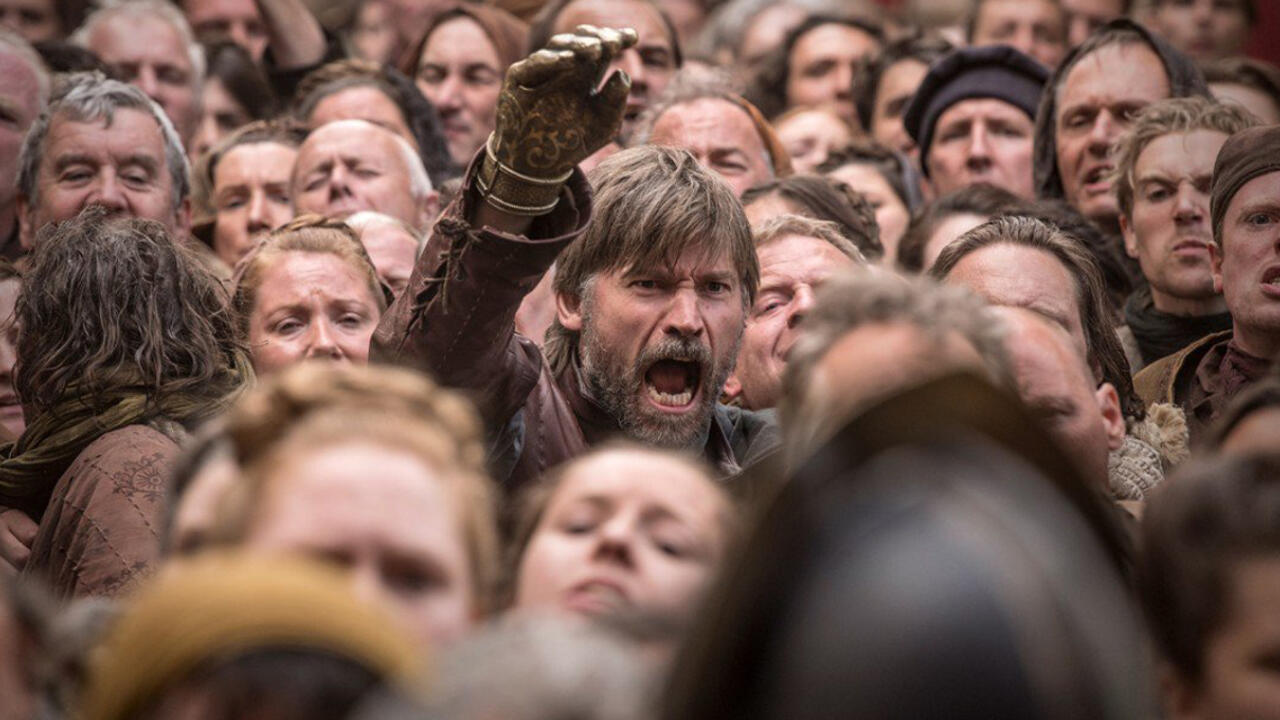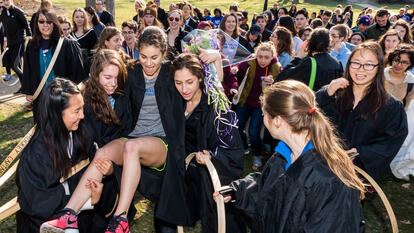Wellesley Professor Discusses the Portrayal of the Peasantry in “Game of Thrones”

Misinterpretations and depictions of medieval history, in both the HBO series Game of Thrones and in society, have become a rallying point for white nationalists, wrote Cord Whitaker, assistant professor of English at Wellesley, in “Game of Thrones’ Peasants are a Problem of White Supremacy—and Its Victims, Too,” in a post for the Middle Ages history and culture blog In the Middle that ran just before the show’s final episode.
The New York Times interviewed Whitaker recently for an article on a related topic, about how medievalists are addressing what the paper called “the ‘weaponization’ of the Middle Ages by a rising tide of far-right extremists.” Some medievalists, the article said, are reluctant to engage with questions of race in the Middle Ages, believing it to be a modern construct. Whitaker, a member of the scholarly organization Medievalists of Color, felt differently, and said that for those scholars, “[i]t’s about asserting the racial and political innocence of the Middle Ages.” As he told the Times, “For medievalists to try to protect the field from engagement with race is ultimately to try to withdraw from the world.”
Below is an excerpt from Whitaker’s blog post:
Game of Thrones comes to its end in an age when the Middle Ages have become a rallying point for white nationalism and supremacy. When white nationalists marched on Charlottesville in August 2017, they bore medieval-style shields; the insignia of the Holy Roman Empire, founded in the Middle Ages; and banners emblazoned with medieval runes. On March 15, 2019, an Australian man stormed into two mosques in Christchurch, New Zealand, and killed 51 people. He injured another 49. His arsenal and battle gear were covered with references to the Middle Ages, from the black sun inspired by the designs on early medieval Merovingian discs—Heinrich Himmler made it into a symbol for Nazi Germany’s SS in the 1930s—to the name of Charles Martel, the Frankish leader who in 732 defeated a Muslim army that was advancing on the French city of Tours. Martel was grandfather to Charlemagne, the first emperor of the Holy Roman Empire. How we interpret the history of the Middle Ages is a life and death matter.
And so is how we interpret its peasantry. Much white supremacist medievalism draws its power from two ideas: first, that medieval Europe was homogeneously white (and the peasant masses in Episode 5 were, from what I could tell, all white); and second, that a young white man can and should can claim spiritual nobility, a spiritual knightliness, and the entitlements that come with it. It is known that economic disadvantage plays a role in the development of alt-right and other white supremacist attitudes. As long as peasants are portrayed as downtrodden masses, then young white men in America, Europe, and the West more broadly who feel economically disadvantaged due to geographical location, educational level, or multi-generational poverty are encouraged to fashion themselves the peasants who will rise to become knights. The narrative is seductive. To a certain extent, it is the narrative animating Jon Snow’s character, and even King Arthur’s. But it is faulty and, when pushed to its extremes, deadly.



